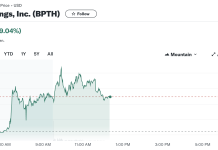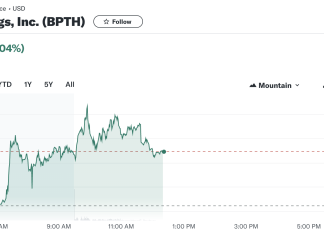Gritstone bio Inc. (NASDAQ: GRTS) has announced the expansion of its agreement with Coalition for Epidemic Preparedness Innovations, CEPI, supporting the creation of a self-amplifying mRNA vaccine to address the Omicron variant of the coronavirus.
Phase 1 study to take place in South Africa
A Phase 1 clinical trial of Gritstone’s Omicron vaccine candidate will be conducted in South Africa. In addition, a CEPI-funded clinical trial of Gritstone’s Beta version COVID-19 vaccine will commence soon. CEPI is expected to offer additional funds of $5 million to carry out the clinical study. The company’s SAM COVID-19 vaccines contain SARS-CoV-2 T cell epitopes (TCEs) that are unaffected by changes reported in the Omicron variation, demonstrating the platform’s ability to target both Omicron and other variants of concern.
CEO of CEPI Richard Hatchett said, “Given the uncertainties, we must accelerate crucial R&D so vaccines are available to tackle Omicron as soon as possible – just in case we need them. There is no time to lose, so I’m pleased that within 10 days of Omicron being declared a Variant of Concern by the WHO, CEPI is expanding its partnership with Gritstone to support a new Omicron vaccine candidate which can be made globally accessibly through COVAX.”
CEPI commits $20.6 million for research on a beta variant of the Gritstone vaccine
CEPI has already committed $20.6 million to preclinical research, manufacturing process optimization, and a Phase 1 trial of Gritstone’s Beta variant vaccine candidate, which contains beta-Spike plus TCEs, which will begin in the coming weeks at the University of the Witwatersrand in South Africa. The money announced today will allow the Phase 1 trial to include more arms in order to test an Omicron-specific vaccination.
Gritstone CEO Andrew Allen Commented, “Our vaccine platforms are built on the premise that a best-in-class vaccine against a virus will drive strong neutralizing antibodies directed to surface antigens such as Spike, and strong cytotoxic T cell responses against other conserved viral antigens to eliminate virally infected cells. This broad immune response would, in principle, provide superior protection against a virus that is mutating its surface protein.”















